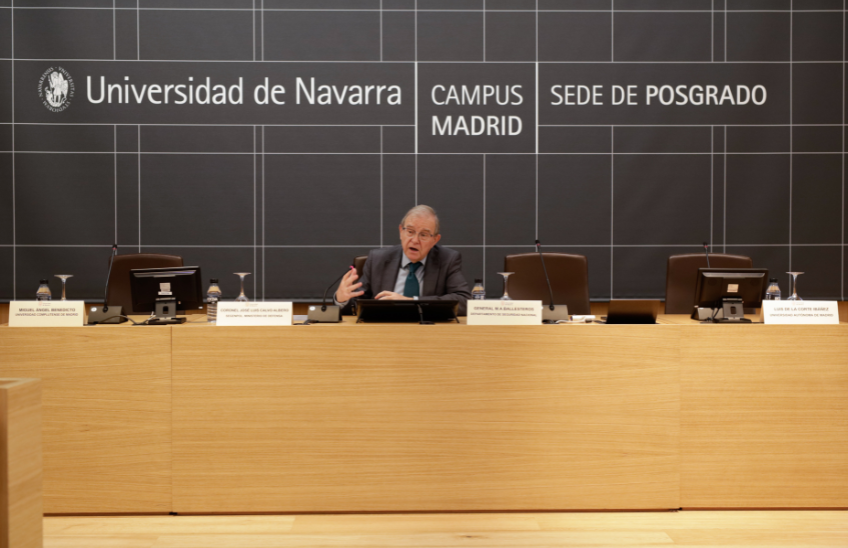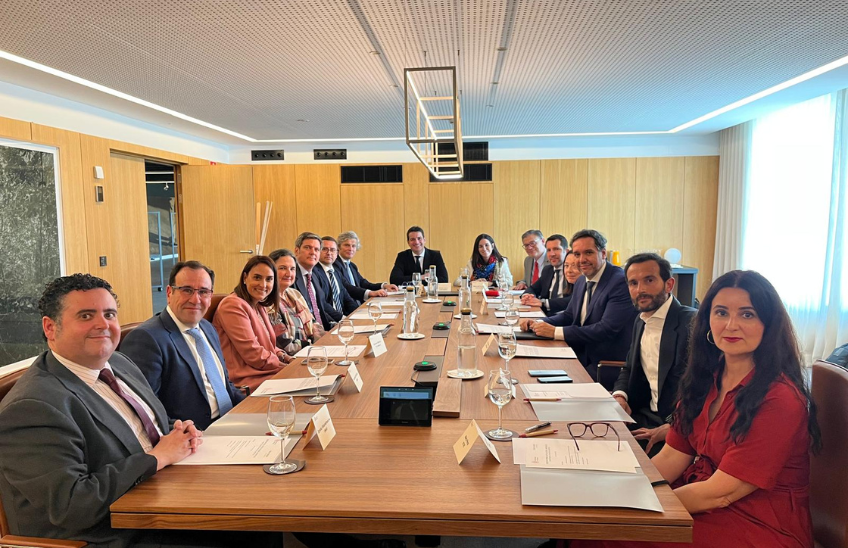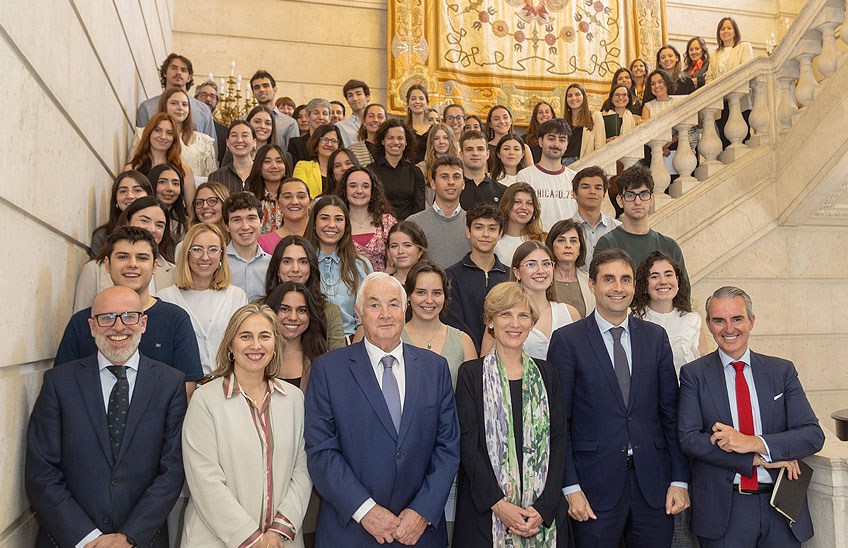Miguel Ángel Ballesteros, director of the National Security department of the Moncloa: "In the face of war, the cohesion of the European Union is core topic. This is the message to be sent to Putin".
Ballesteros participated in the presentation of the University's annual Global Affairs report and pointed out that sending battle tanks to Ukraine "is not decisive."

PhotoJoséJuan Rico/The director of the department de Seguridad Nacional de la Moncloa, Miguel Ángel Ballesteros, during his intervention at the presentation of the Global Affairs Journal, at the headquarters of postgraduate program in Madrid.
26 | 01 | 2023
A year after the beginning of the war between Russia and Ukraine, the campus of the University of Navarra in Madrid became yesterday a forum of discussion where the consequences of the conflict in the European Union, the geopolitical strategy of Russia, the role of the United States and NATO and the entrance in play of other actors such as Turkey and, above all, China were exposed. It was during the presentation of the annual report prepared by the research center Global Affairs of the University of Navarra. The event was attended by the general and director of department National Security, Miguel Angel Ballesteros, who stressed the importance of unity in the European Union: "In the face of war, the cohesion of the EU is core topic. This is the message to be sent to Putin". Miguel Ángel Ballesteros referred to the pandemic and the war and affirmed that opportunities arise from crises. In this sense, he stressed: "Europe can be a major geopolitical actor". He also referred to the sending of battle tanks to Ukraine by the US and other countries such as Germany and Spain. "The United States is going to send 31 battle tanks. They are not decisive, they are small numbers, but what matters is the message and the message is: we are a pineapple," he said.
Miguel Ángel Ballesteros explained to the attendees some of the main points of the so-called EU Strategic Compasswhich aims to strengthen European security and defense policy until 2030 and is based on four pillars: having a rapid deployment capability of at least 5,000 troops; substantially increasing the defense expense ; boosting the intelligence analysis capability and continuing to strengthen partnership with NATO .
In contrast to the shared security policies of previous decades, Ballesteros explained the international order established in the latest geostrategic concept of the Atlantic Alliance, C in June last year in Madrid, which prioritizes deterrence actions and the defense of the territorial integrity of all all allies not only in the face of an armed attack but also in the face of so-called hybrid threats: cyberspace, disinformation campaigns, interference in democratic institutional processes, etc. "The Euro-Atlantic area is not at peace. Russia is a threat. China has become a technological, economic and political challenge," he said . administrative assistant In view of the loss of US hegemony, Ballesteros assured that China wants to be what the former US Secretary of State, Madeleine Albright, called "the indispensable nation".
The effects of war and the curse of Heartland
In addition to General Ballesteros, the session was attended by Colonel José Luis Calvo Albero (Ministry of Defense); Luis de la Corte Ibañez (Autonomous University of Madrid) and Miguel Ángel Benedicto (Complutense University of Madrid) and the professor of the University of Navarra, Salvador Sánchez Tapia, authors of the articles of the report Global Affairs Journal 2023, edited under the degree scroll "War returns geopolitics to Europe: Mackinder's echo".
Experts analyze the consequences of the conflict in the EU, geopolitical thinking in Central and Eastern Europe and the geopolitics of competitive cooperation between Turkey and Russia, among other issues.
"The first effect of the war in Europe is the drastic alteration of the EU's relations with Russia; secondly, the invasion has been a further incentive, after the pandemic, to strengthen cooperation between EU members, which has materialized so far," said Luis de la Corte. Miguel Ángel Benedicto brought those present closer to the role played by Turkey in the current international order: from being an ally of the EU to aligning itself with China and Russia, in search of greater strategic autonomy, conditioned above all by its energy and commercial dependence on Russia. For his part, Colonel José Luis Calvo Albero made reference letter to Halford John Mackinder's theory on the "Heartland". The Heartland refers to the "heartland" of the Eurasian continent, from where threats have historically come to Europe; controlled by Russia in its Asian expansion, the obsession with the need for defense of such vast territory has generated the culture of confrontation shown by Moscow. "Today the threat is Russia but what will happen with Ukraine or Poland militarized and armed to the teeth? In the end you become the threat you wanted to neutralize. That is the curse of the 'Heartland'."


